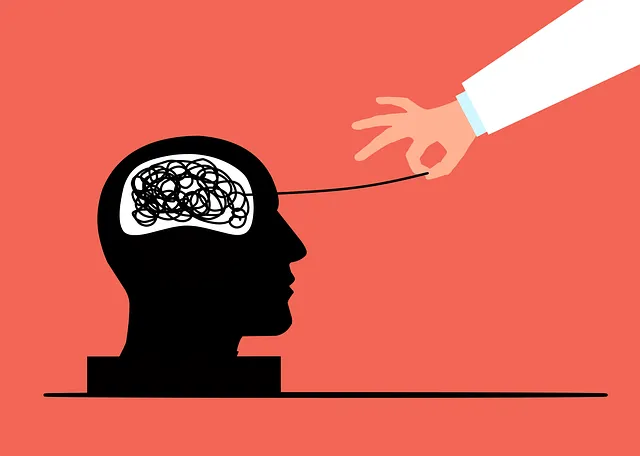Mental illness diagnosis in Littleton faces challenges due to symptom overlap, stigma, and lack of training. Kaiser Permanente improves accuracy through advanced assessment tools, standardized protocols, and patient-centered care, including coping skills development programs like Inner Strength and Mindfulness Meditation. Their multi-faceted approach enhances mental health coverage, enabling tailored treatment plans and fostering open conversations about mental wellness in the community.
Mental illness diagnosis accuracy is a critical aspect of effective treatment and management. Despite advancements in healthcare, challenges remain in identifying and diagnosing mental disorders early. This article explores current hurdles in mental illness diagnosis, focusing on Kaiser Permanente’s innovative strategies to enhance accuracy. We delve into their approach, examining its impact on improving mental health coverage in Littleton, highlighting the potential benefits for affected individuals and the community at large.
- Understanding the Current Challenges in Mental Illness Diagnosis
- Kaiser Permanente's Approach to Enhancing Diagnosis Accuracy
- The Impact of Improved Diagnosis on Littleton's Mental Health Coverage
Understanding the Current Challenges in Mental Illness Diagnosis

Mental illness diagnosis presents several challenges that impact both accuracy and accessibility of care. One significant hurdle is the complexity and overlap of symptoms across various disorders, making it difficult for healthcare professionals to distinguish between them. For instance, depression can closely mimic anxiety, leading to misdiagnosis or delayed treatment. This intricacy necessitates a comprehensive understanding of each patient’s unique presentation, requiring thorough assessment tools and extensive training for mental health practitioners.
Moreover, the stigma surrounding mental health issues often prevents individuals from openly discussing their experiences, hindering accurate diagnosis. Many patients arrive at healthcare facilities with undiagnosed conditions or misattributed symptoms, further complicating the process. Organizations like Kaiser Permanente in Littleton, with their comprehensive mental health coverage, are actively working to improve diagnostic accuracy by promoting early intervention and providing resources for better coping skills development and self-esteem improvement.
Kaiser Permanente's Approach to Enhancing Diagnosis Accuracy

Kaiser Permanente, a renowned healthcare provider, has been at the forefront of enhancing mental health diagnosis accuracy in its facilities across Littleton and beyond. Their approach is multifaceted, focusing on several key strategies to improve identification and treatment. One of their primary methods involves implementing advanced assessment tools and clinical guidelines to streamline the diagnostic process. By standardized protocols and evidence-based practices, Kaiser Permanente ensures that healthcare professionals have a comprehensive framework to accurately assess symptoms, behaviors, and underlying causes associated with various mental illnesses.
Furthermore, they emphasize the importance of communication strategies between patients, caregivers, and providers. Encouraging open dialogue and active listening fosters an environment where individuals feel heard, understood, and supported. This approach, coupled with initiatives like Inner Strength Development and Mindfulness Meditation programs, aims to empower individuals to actively participate in their mental health journeys while promoting self-awareness and coping mechanisms.
The Impact of Improved Diagnosis on Littleton's Mental Health Coverage

Improving diagnosis accuracy plays a pivotal role in enhancing mental health support systems, especially in regions like Littleton where access to quality Kaiser Permanente mental health coverage is paramount. Accurate diagnoses are the cornerstone of effective treatment plans, ensuring individuals receive tailored interventions for their unique conditions. By refining diagnostic processes, healthcare providers can better identify and address complex mental health issues prevalent in today’s society.
This shift towards enhanced diagnosis has a profound impact on Littleton’s mental wellness ecosystem. The Kaiser Permanente mental health coverage in this area becomes more targeted and beneficial when diagnoses are precise, enabling access to specialized services like the Mental Wellness Podcast Series Production, Burnout Prevention, and Resilience Building initiatives. Such programs cater to the diverse needs of the community, fostering open conversations about mental health and providing valuable resources for improvement. This proactive approach not only empowers individuals but also contributes to a more resilient and supportive environment for those navigating their mental wellness journeys.
Efforts to enhance the accuracy of mental illness diagnoses, such as Kaiser Permanente’s innovative approach, hold immense potential to improve access and quality of care. As demonstrated in Littleton, where enhanced diagnosis has positively impacted mental health coverage, these initiatives can lead to more effective interventions and better outcomes for individuals struggling with mental health conditions. Continued collaboration between healthcare providers, researchers, and policymakers is crucial to refining diagnostic practices and ensuring that everyone receives the compassionate, accurate care they deserve.






